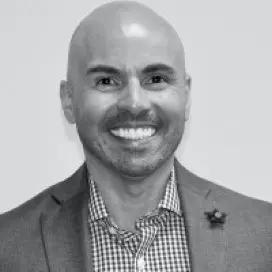Certificate
Organizational Development Certificate
Lead the change you wish to see at your organization! In this certificate program, you’ll learn ways to improve performance and manage change through use of organizational development best practices. Explore the different models and strategies that help shape culture across sectors, then take on constructing a diagnosis plan, synthesizing data, and communicating your findings.
Let us help you succeed.
*Indicates a required field.
Top-ranked, career-focused education in a flexible format.
At a Glance
Classes Begin
March 31
Term Length
10 Weeks
4 Course Certificate
Tuition
$13,344
6 Course Certificate
Tuition
$20,016
Format
Evening or Online
Admission
No GRE or GMAT
Duration
As few as 6 months
Duration
As few as 12 months

Top-Ranked University by U.S. News & World Report

Connect with an Advisor
Brian Cicero
Text Me at 303-900-0375
Email Me
Call Me
Schedule an Appointment
Free Application
University College is committed to educational access, and given the difficult circumstances currently impacting millions of people, we are waiving application fees.
Skills You’ll Learn
Implement change initiatives
Develop a personal philosophy of organizational change
Create organizational assessments
Curriculum
Specialized Graduate Certificate in Organizational Development requires completion of 16 credit hours (4 courses).
| 4 Concentration Courses |
Graduate Certificate in Organizational Development requires completion of 24 credit hours (6 courses).
|
4
Concentration Courses
|
2
Elective Courses
|
Featured Instructors
Sample Schedule
Plan your schedule to complete your graduate certificate. Finish quickly in just six months or take up to two years (four course certificate) or three years for a six-course certificate.
| Year 1 | Q1 | Q2 | Q3 | Q4 |
|---|---|---|---|---|
| 4-Course Certificate Classes | 2 | 2 | 0 | 0 |
| 6-Course Certificate Classes | 3 | 3 | 0 | 0 |
| Year 1 | Q1 | Q2 | Q3 | Q4 |
|---|---|---|---|---|
| 4-Course Certificate Classes | 1 | 1 | 2 | 0 |
| 6-Course Certificate Classes | 2 | 2 | 2 | 0 |
| Year 1 | Q1 | Q2 | Q3 | Q4 |
|---|---|---|---|---|
| 4-Course Certificate Classes | 1 | 1 | 1 | 1 |
| 6-Course Certificate Classes | 1 | 2 | 2 | 1 |
Interested in a master’s degree?
Explore our Master of Arts in Organizational Leadership with a concentration in Organizational Development.
Take a Course Before You Apply
We know how important it is to get started when you’re ready and that’s why you can enroll in a course before you officially apply.
Career Outcomes
Predicted outcomes for graduates of Organizational Development
The job outlook for training and development specialists is expected to grow 11% through 2030. One major factor for growth is due to the constant need for workplace training and education.
Innovations in training methods will continue as organizations use technology and social networks in their training programs.
Job prospects with experience developing online and mobile training programs will have a competitive edge.
Job Titles
Training and Development Specialist Salary: National Average
$59,020
(U.S. Bureau of Labor Statistics)
Get Ahead with Career Services
One-on-one career coaching and mock interviews
Job database dedicated to DU students and alumni
Résumé and cover letter guidance
Hear from Our Students
Theme: Job Satisfaction
Organizational Leadership
“Every single class taught me something that I didn’t know before. Every single class had the capacity for me to grow with other people—even online.” —Mario Burton, graduate.
Flexible Online Classes
We understand the demands of balancing work, friends and family, and school can be challenging. That's why at University College, you can complete your program entirely online. Our online learning platform makes it easy to work anywhere at any time.
Accreditation
Higher Learning Commission
University College programs maintain the highest level of accreditation offered by The Higher Learning Commission, one of the regional accrediting bodies recognized by the federal government. The University of Denver and all of its academic programs are regionally accredited by this commission, and regional accreditation is the highest standard for universities in the United States.
Take the Next Step








